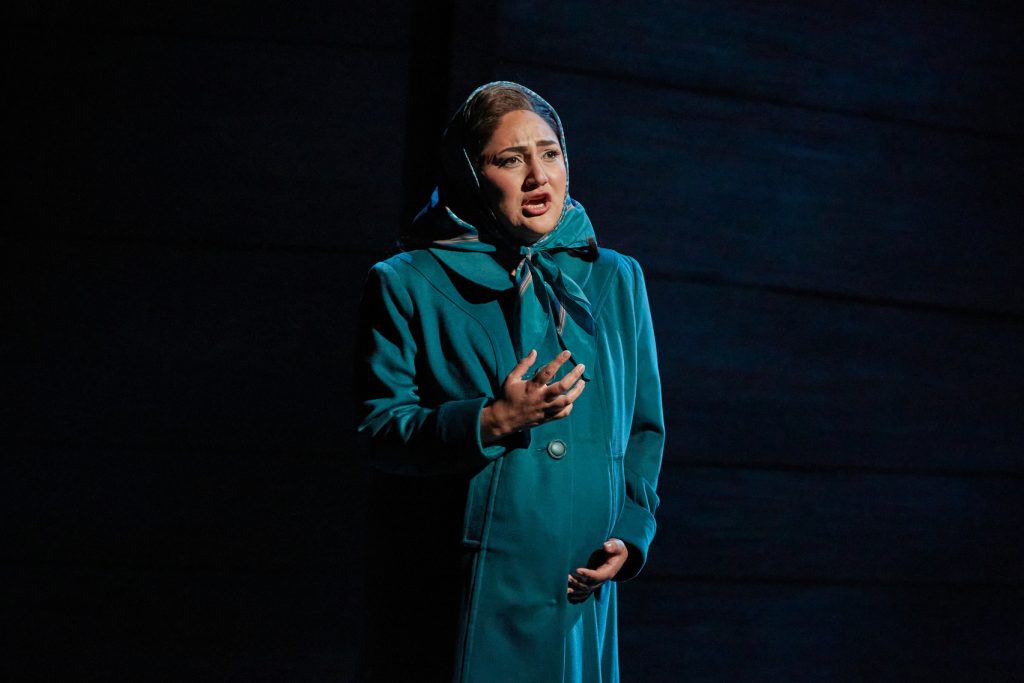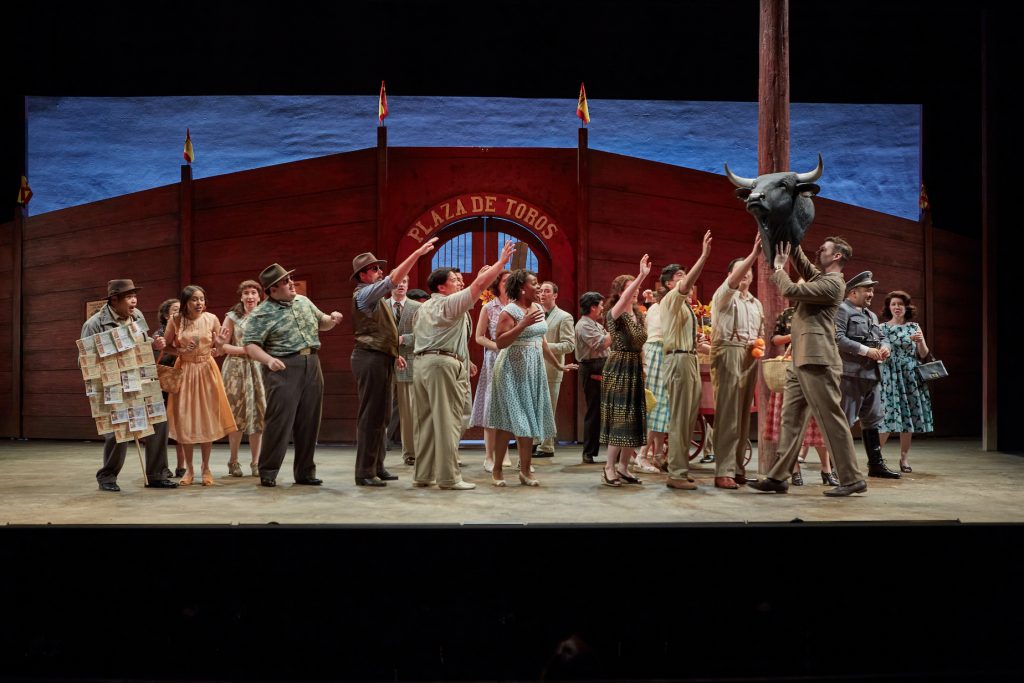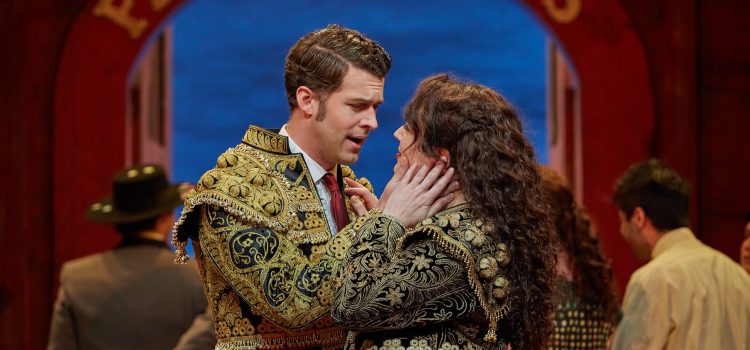By CB Adams
“Carmen” is no stranger to controversy. As far back as its premiere in 1875, audiences and reviewers were put off by the opera’s depiction of the lifestyles of commoners and bohemians, and their supposed immorality and lawlessness – not to mention the onstage death of Carmen herself. Flash forward to Opera Theatre of St. Louis’s 47th season opener, “Carmen,” at the Browning Theatre in the Loretto-Hilton Center, and there may be a bit of operatic controversy afoot as well.
That’s because Director Rodula Gaitanou has updated the setting and Carmen herself to appeal to more modern sensibilities. Gaitanou has moved the mid-19th century Spanish setting to the 1950s and, correspondingly, uniformed the original army into Franco’s Guardia Civil.
But it is Carmen herself, initially seen dragging a bloody bull’s head across the stage, who is distinctly reimagined in OTSL’s production. Carmen is often presented as a stereotypical, exotic, Spanish seductress – as hot as the “Habanera” she sings early in the opera. Not so in this production. Gaitanou provides a headstrong, independent Carmen – one that doesn’t need to prove her ability to turn a man’s heart and head with a flashy red dress, a provocative sashay or even stiletto heels. The audience is challenged to accept Carmen’s ability to inspire the men around her, as well as to witness her fatal attraction to the ideals captured in her final duet with Don José: “But whether I live or die / No! No! No! I will not give in.”
That idealistic inflexibility leads, even in this interpretation, to her inevitable demise.

Gaitanou’s Carmen, as sung by Sarah Mesko, is more formidable, though no less unforgettable. She even rides through some scenes on a motorcycle, like a sort of Daughter of Anarchy. In other scenes, she sports a matador jacket, a visual metaphor for a woman who – ultimately fatally – runs and fights with men rather than the bulls.
To spend more time explaining Gaitanou’s artistic choices for the presentation of Carmen is to risk providing a lopsided review of the rest of this fine production. To Gaitanou’s credit, this production elevates and balances the role of Carmen with her love interests, Don José, sung by Adam Smith, and Escamillo, sung by Christian Pursell. Both are strong, masculine and believable – and Mesko’s Carmen is up to the challenges posed by these two males.
The standout performance among this strong cast is provided by Yunuet Laguna as Micaëla. Clad throughout as a dowdy, frumpy (and even pregnant by Don José) village maiden, Laguna’s “Je dis que rien m’epouvante” shines forth as a potent, if plaintive, Jiminy Cricket counterpoint to Carmen’s shinier persona. That a supporting role can rise to such showstopping prominence proves this production’s overall high quality and integrity.
Under the baton of Daniela Candillari, Opera Theatre’s new principal conductor, the Saint Louis Symphony impressively projects as if it were a larger ensemble of musicians and more than does justice to Bizet’s score.
Also noteworthy is the subtle-yet-profound sets and costumes by Cordelia Chisholm and lighting by Christopher Akerlind. “Carmen” is often associated with a fiery red and other brash, bullfighty colors. In contrast, this production evokes a Spain dusted in a drab desert palette, which is perfect for the most important splash of red at Carmen’s culminating death scene.
Opera Theatre’s “Carmen” continues at 7:30 p.m. on Jun 8, 12, 16, and 25 and at 12:30 p.m. on Jun 4 and 22. For more information on the 2022 Festival Season or for tickets, visit: https://opera-stl.org/


CB Adams is an award-winning fiction writer and photographer based in the Greater St. Louis area. A former music/arts editor and feature writer for the St. Louis Globe-Democrat, his non-fiction has been published in local, regional and national publications. His literary short stories have been published in more than a dozen literary journals and his fine art photography has been exhibited in more than 40 galley shows nationwide. Adams is the recipient of the Missouri Arts Council’s highest writing awards: the Writers’ Biennial and Missouri Writing!. The Riverfront Times named him, “St. Louis’ Most Under-Appreciated Writer” in 1996.

